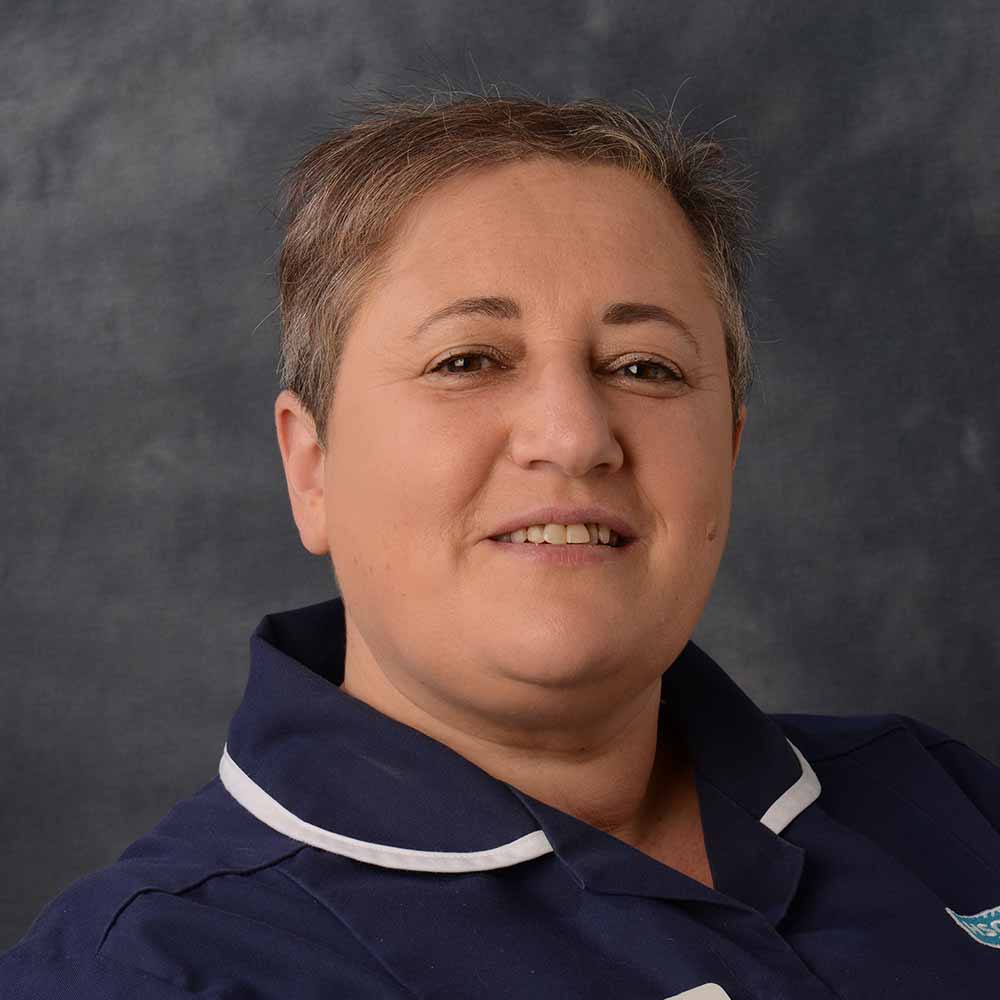Jeannie Donnelly

Jeannie qualified as a Registered Nurse in Belfast in 1988. She spent the first 8 years of her career working in a Fracture Trauma Unit at the Royal Victoria Hospital.
During her time in this specialty, she became passionately interested in wound healing and tissue repair. In 1996, Jeannie became the first Tissue Viability Nurse on the island of Ireland, and in 2010, the Lead Nurse for Tissue Viability within the Belfast Health and Social Care Trust.
Jeannie has taught within the School of Nursing, Queens University Belfast for over 20 years. She is very proud to be part of the university team, which successfully developed an NMC approved Tissue Viability Nurse Specialist Course in 2018.
Jeannie is dedicated to pursing excellence in the delivery of safe and effective care and is passionate about improving patient and client experience.
She was proud to be a Trustee, and then Chair of the Society of Tissue Viability and remains an active member. She has recently taken on the role of UK Director of the International Skin Tears Advisory Panel.
Presentation at The Society of Tissue Viability 2025 Conference
Skin tears: Handle with care
Objectives
This session will be of interest to all practitioners who care for people at risk of skin tears.
At the end of the session, the delegate will:
- Have a raised awareness of skin tears at extremes of age
- Be able to articulate the importance of identifying at-risk patients, so that an action plan can be put into place to help prevent skin tears
- Classify and manage skin tears using ISTAP guidelines
Abstract
Background – A skin tear is defined as a traumatic wound caused by mechanical forces, including removal of adhesives. Whilst severity may vary by depth, i.e. these injuries affect the epidermis and dermis, they do not extend through the subcutaneous layer.
Methods – Using the acronym S.O.U.N.D., this presentation will outlined factors which lead to skin fragility as well as factors to be considered when caring for a person with a skin tear, and actions that can be taken to prevent further harm.
Key messages – Skin tears are a source of pain, and can, potentially lead to serious problems such as infection.
Skin tears must be ‘handled with care’, i.e., practitioners must not cause unnecessary harm, through inappropriate actions or indeed, inaction.
Practitioners are advised to review the Best Practice Recommendations for prevention and management of skin tears in aged skin.
LeBlanc K et al. (2018) Best practice recommendations for the prevention and management of skin tears in aged skin. Wounds International.
Presention at The Society of Tissue Viability 2022 Conference
Pressure damage reduction at end of life
Objectives
After attending this session, persons will be able to:
- Debate the integral role that pressure ulcer preventive care plays in palliation
- Recognise that the terminology around skin failure is confusing
- Link the physical relationship between pressure ulcer development and death
- Recognise that pressure ulcer preventive care must be consistent with the person’s wishes and priorities
Abstract
The purpose of this presentation is to illustrate the complexity of pressure ulcer reduction at end of life. This will be achieved through a series of personal and professional stories as well as a reflection on the literature.
End of life is defined as a phase of life when a person is living with an illness that will often worsen and eventually cause death. This phase can begin weeks or even months before death.
As patients are dying, their risk of developing pressure damage increases due to physiological factors related to disease progression and treatment. (Hotaling & Black, 2018).
Unfortunately, many of these risk factors are related to the dying process and may be difficult to mitigate against, e.g. anorexia-cachexia syndrome, worsening fatigue, severe dyspnoea and clinical instability.
Sadly, people who develop pressure damage during the dying process, experience significant pressure related pain and discomfort. This results in a decreased quality of life and disrupted dying.
It is therefore imperative that all actions, that can be taken, to prevent pressure damage are instigated in a timely manner. However, these must be consistent with the person’s wishes and priorities, even when this leads to conflict between the goals of palliative care and the measures needed to prevent tissue damage.
The presentation will conclude with a number of suggestions which may assist in pressure ulcer prevention, at this difficult juncture in care.














